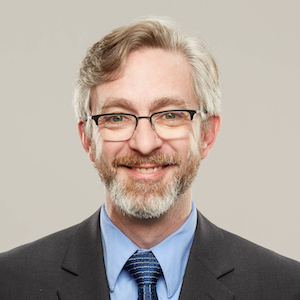 On January 8th, the Supreme Court heard oral arguments in Fourth Estate Public Benefit Corporation v. Wall-Street.com [Case No. 17-571 (Jan. 8, 2019)] to settle a longstanding circuit split on the copyright registration prerequisite to a copyright infringement suit.
On January 8th, the Supreme Court heard oral arguments in Fourth Estate Public Benefit Corporation v. Wall-Street.com [Case No. 17-571 (Jan. 8, 2019)] to settle a longstanding circuit split on the copyright registration prerequisite to a copyright infringement suit.
The Split
The first sentence of Section 411(a) in the Copyright Act states: “[N]o civil action for infringement of the copyright in any United States work shall be instituted until preregistration or registration of the copyright claim has been made in accordance with this title.” The courts of appeals have disagreed as to what precisely this “registration” condition in section 411(a) requires. Courts applying the “application approach” have held that the condition is met when a copyright owner submits all the materials required to register a work to the Copyright Office. Courts applying the “registration approach,” on the other hand, have held that it is met only when the Copyright Office has actually made its decision by either denying the application or issuing the certificate of registration. In the case below, the Southern District of Florida dismissed Fourth Estate’s copyright case against Wall-Street.com, and the Eleventh Circuit affirmed, because Fourth Estate sued Wall-Street.com after applying to register its copyrights, but before the Copyright Office acted. Fourth Estate Pub. Benefit Corp. v. Wall-Street.com, LLC, 856 F.3d 1338, 1341 (11th Cir. 2017). The resolution of the circuit split will turn on the Justices’ construction of the statutory phrase “registration . . . has been made.” Specifically, who, in the statutory scheme, “makes” the registration: the copyright owner (according to Fourth Estate), or the Copyright Office (according to Wall-Street.com)? Oral argument seemed to suggest that the Justices found Wall-Street.com’s textual argument had more weight, though some of them expressed reservations about what Congress intended and the practical implications of requiring litigants to have a certificate of registration in hand before filing suit.
The Questions Considered in Fourth Estate
Justice Kagan agreed with Fourth Estate that the term “registration” was flexible enough to encompass both meanings, but noted the parallel structure between the use of “registration has been made” in the first sentence of Section 411(a), and the use of “registration has been refused” in the second sentence: “[Y]ou have these two sentences, they’re in total proximity. They’re both framed in the passive voice. ‘Registration has been refused’ is clearly the registration has been refused by the Register, not by the holder. And so it seems,” Justice Kagan continued, “the only way to read this is that ‘registration has been made’ is by the Register too.” Similarly, Chief Justice Roberts pointed out that “in a situation where you’ve got a registrar . . . the most likely understanding of ‘registration’ is what that person does.”
The Chief Justice, however, also found merit in Fourth Estate’s argument that numerous provisions of the Copyright Act use identical or similar language when referring to the action of the copyright owner. As a result, according to the Chief Justice, both parties’ constructions lead to incongruities in textual meaning throughout the statute.
Justices Kavanaugh and Gorsuch, by contrast, focused their questioning on the policy and practical implications of the parties’ positions. Justice Kavanaugh, in particular appeared to find Wall-Street.com’s textual argument more convincing but seemed concerned that adopting its position could result in serious problems for copyright holders. In a world where artistic works can be quickly and widely distributed over the internet, Fourth Estate argued, requiring a copyright owner to wait until the Copyright Office has acted could lead to delay and the loss of substantive rights. This concern is particularly acute because of the backlog of applications at the Copyright Office; currently applications are processed in 2-15 months. Wall-Street.com’s answer was that Congress and the Copyright Office have provided means to address many of the issues that are likely to come up, including: (1) the Copyright Office’s special handling procedures allowing a pending application critical to litigation to be immediately considered and acted upon by the Copyright Office; (2) pre-registration for artistic works that are not yet finished; and (3) the live broadcast exception in Section 411(c).
Tea Leaves Versus Text
The Justices gave little indication as to how convincing they found either party’s policy arguments. The first rule of statutory interpretation, however, is that if the plain meaning of the text is clear, the inquiry ends. Here, at least two of the Justices acknowledged that the term “registration” is flexible, so the issue may end up turning on how far outside the four corners of Section 411(a) the Court is willing to look to determine its meaning. One of Justice Scalia’s enduring legacies has been the Supreme Court’s increased focus on the primacy of text in statutory construction. With Justice Kavanaugh now on the bench (by all accounts a committed statutory textualist), Fourth Estate’s argument that a pending application is sufficient appears to face an uphill climb with this Court.
If, as anticipated, the “registration” approach prevails, expect to see an increase in the number of special handling filings at the Copyright Office, and a potential new backlog of such applications. If, however, the “application approach” prevails, it could pit copyrightability and registration decisions made by courts against later-issued determinations by the Copyright Office, potentially creating post-litigation disputes.
Image Source:
Deposit Photos
Image ID: 118290464
Copyright: alexlmx

![[IPWatchdog Logo]](https://ipwatchdog.com/wp-content/themes/IPWatchdog%20-%202023/assets/images/temp/logo-small@2x.png)


![[Advertisement]](https://ipwatchdog.com/wp-content/uploads/2024/04/Patent-Litigation-Masters-2024-sidebar-early-bird-ends-Apr-21-last-chance-700x500-1.jpg)

![[Advertisement]](https://ipwatchdog.com/wp-content/uploads/2021/12/WEBINAR-336-x-280-px.png)
![[Advertisement]](https://ipwatchdog.com/wp-content/uploads/2021/12/2021-Patent-Practice-on-Demand-recorded-Feb-2021-336-x-280.jpg)
![[Advertisement]](https://ipwatchdog.com/wp-content/uploads/2021/12/Ad-4-The-Invent-Patent-System™.png)







Join the Discussion
No comments yet.